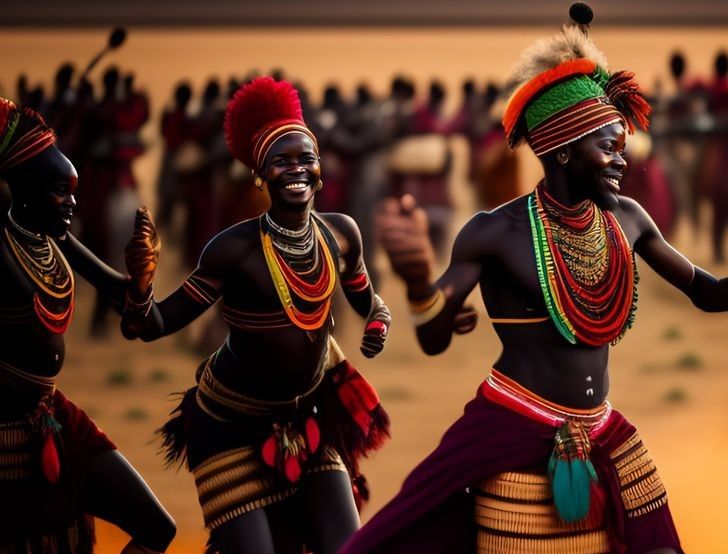How well do you know the dynamics of the African continent? What if I tell you Africa holds an amazing ancient history that dates back to the pre-colonial era? Certain studies have tried to prove that the history of Africa started with the emergence of humans termed “archaic hominids, gorilla-like.”
I wonder how such an animal can transform into man, interesting you will agree. Empires existed then. Empires like the Mali Empire which dates back to the 12th century, and the kingdom of Aksum in Ethiopia which dates back to 200 AD. The Kingdom of Mapungubwe dates back to the 10th century which is Zimbabwe of today and so many more.
Without much ado, let’s get adventurous!
Table of Contents
The African Continent: An Overview
This continent is regarded as the home of untapped, rich ancient history. It is divided into South, North, East, West, and Central Africa.
- Southern Africa is home to countries like Swaziland, Angola, Namibia, South Africa, Malawi, Botswana, Zimbabwe, Tanzania, Madagascar, Mauritius, Lesotho, Mozambique, etc.
- Northern Africa has countries like Algeria, Morocco, Egypt, Tunisia, Libya, and the northern part of Sudan which are the major occupants of this region.
- Eastern Africa host countries like Somalia, Kenya, Seychelles, Rwanda, Ethiopia, Zambia, Uganda, Djibouti, Burundi, etc.
- West African countries are Nigeria, Sierra Leone, Senegal, Ghana, Mali, Côte-d’Ivoire, Benin Republic, Niger, Cameroon, Liberia, etc.
- Central African countries are Gabon, Central Africa Republic, Congo Republic, etc.
If you don’t mind receiving updates about more of our premium insights, simply connect with us on our Instagram page today and let’s keep you posted.
African Countries with the Richest Ancient History
To pinpoint selected African countries with the richest histories might pose an impossible task because all African countries have single or interrelated historical events, culture, commerce and edifice that are rich. But for the course of this study, a few that stand out will be discussed. The first on my list is Mali.
-
Mali
This country is known for its empire that dates back to 1200 BC, precisely 1226 BC to 1670 BC. The empire was started by Sundiata Keita but the empire recognized greatness in the kingship of Musa Kieta also known as Mansa Musa.
He brought the kingdom to its peak of glory, making it the biggest empire in the region of West Africa and one of the richest in the world due to its gold and salt. It controlled the sub-Saharan trade route to the Middle East and Northern Africa. Mali was also notable in respect of the Songhai Empire which came into existence in the 15th century.
Mali was recorded as one of the largest African empires that ever existed. After the disintegration of the Mali Empire in the 14th century, the Songhai Empire seized control of the Saharan trade route. They traded in gold, salt, kolanuts, slaves, leather and ivory.
Read also: African Culture: The Impacts of Family and Community Ties
-
Egypt
This is a country in the Northern part of Africa. It dates back to 3100 BC. It is noted for its rich antiquities, culture (i.e., mummifying/embalming) and technology which replicates modern technology through its architectural edifice like the pyramids structures. This structure could stand as high as 139 meters.
The Egypt civilization constitutes the Early Kingdom, the Middle Bronze Age and the Late Bronze Age. The river Nile gives them the advantage that boosts the agricultural produce. Their major export was their crops as well as gold. Furthermore, in Egyptian culture, the rich technology was evidence of bronze works and also glasswork i.e. the Faience glass work etc.
They believed in the afterlife which was an illustration of the decorated/painted tomb and mummies. They crave with an obsession, a life of continuation after death. For example, when a man dies (especially a notable individual), his body will be embalmed (mummified), which delays the process of decay for a long time. The Egyptians believe that to ensure the soul and spirit are not lost, the body has to be mummified.
-
Madagascar
A nation in the southern part of Africa, off the Eastern coast of Africa. It holds its rich ancient history in the wealth of its biodiversity. Studies have shown that Madagascar is the “fourth world’s largest island.”
Its biodiversity hosts various species, plants and animals ever known to mankind. Over 90% of the wildlife is endemic and this puts the region on the list of megadiverse countries in the world.
Read also: How Africa Will Be Affected When ECOWAS Ceases to Exist: A Looming Challenge
-
Sudan
This country is notable for its historic Kush kingdom in 1070 BC. They share a boundary with Egypt along the river Nile. Nubia, as it was called then, experienced civilization, exchanging trade and cultures, including war with their Egyptian neighbour. This kingdom was so wealthy in gold and iron and this made them so powerful.
They also share a culture with the Egyptians for building pyramids. In Meroe, an ancient city of the Kush kingdom, pyramids for tourism sites, stand to date.
Read also: Africa’s Role in Global Diplomacy and International Relations
-
Nigeria
A country rich in culture, events and edifice that dates back to centuries ago. The country has different pre-colonial cultural heritages. Different kingdoms came to settle in this region. The Oyo Empire, Benin Empire, Nri kingdom, Nok kingdom, Bornu Empire, etc. The Nok culture existed and extended from 500 BC to 200 AD.
It existed in the northern region of Nigeria, west of Plateau State, Jos to be precise. They major as farmers, using iron to carve sculptures. Another ancient kingdom was the Nri kingdom. Studies have shown that it was the earlier settlement of the Eastern people of Nigeria known as the Igbos. It dates back to 900 AD.
This kingdom was ruled by an Eze-Nri, who used mystic powers. They had great hunters and trade in agricultural produce. They were recorded to be a zero-slave-trade-zone and they made their region a haven for slaves that escaped their masters.
Do you love this post and won’t mind getting our latest insights dropped into your inbox? Good! Simply subscribe to our newsletter today and let’s keep you updated.
Conclusion
African countries have rich ancient history which stands out today in shaping the diverse cultural heritage of its citizens. Aside from the countries mentioned above, all other African countries have ancient histories that date back to the pre-colonial era. Some believe that Africans during the pre-colonial era were primitive in their dealings but with several findings, this continent has come to challenge such notions.
Edited by Priscilla Ajayi.
About Author

- I am a digital creator, content writer/creator, social media management and advertising specialist, social media evaluator and voice over artist.
Latest entries

 OpinionNovember 7, 2024A Capitalist or Democratic Government: Which One is Better?
OpinionNovember 7, 2024A Capitalist or Democratic Government: Which One is Better?


